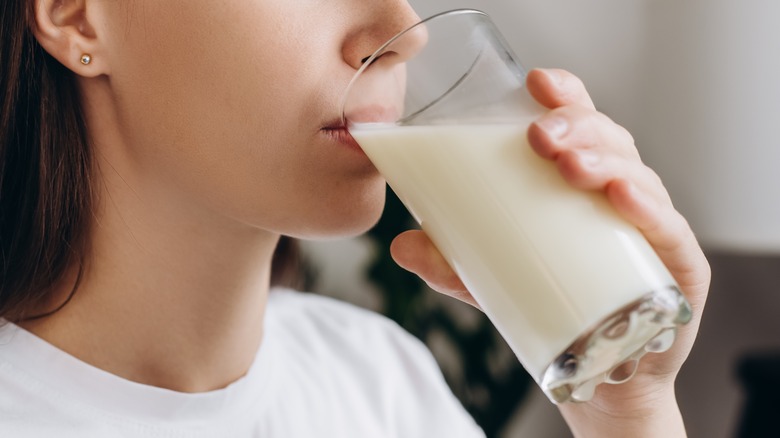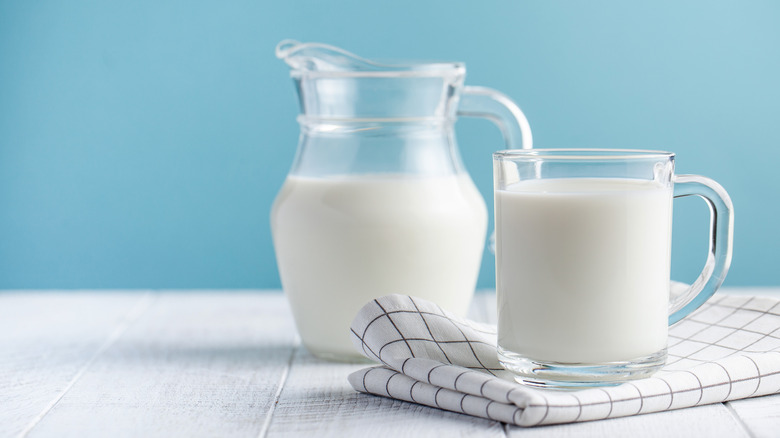Can You Actually Freeze Milk?
Freezing foods can be a great way to save not just on grocery trips — but on your budget; if you can nab extra food when it's on sale and preserve it for later, it's a win-win situation. And there are a lot of foods you can freeze; most people know you can freeze meat or fish, but you might not realize things like bread, hard cheese, and even sauerkraut take to freezing pretty well, actually.
But what about other things? Hey, beverages can be frozen, and obviously, water freezes fantastically, so wouldn't other liquids follow the same rules? How about milk? If you can freeze cheese, you can freeze milk, right?
It turns out, the answer is basically "yes, but." Unfrozen milk can still be used for certain things, but if you're wondering whether you will enjoy drinking it, there's an emphatic answer to that question – no, you will not. Drinking unfrozen milk may not be unhealthy, but you will feel like it is. It's an experience you will likely very quickly regret. When unfrozen, the milk will likely be separated and maybe even curdled.
Water and fat separate in milk when you freeze it
It's important to stress: You can freeze milk, thaw it, and then drink it, and it's not going to hurt you. There are no health risks here. But while it's not going to hurt you physically, it could very well hurt you emotionally because unfrozen milk is absolutely unappetizing as a beverage.
When food is frozen, the water crystals in the food expand, possibly damaging a solid (or semi-solid) food's cell walls. This is why rapid freezing is important: Only smaller crystals are able to form, causing less damage. Remember how hard cheese freezes well? Yeah, turns out soft cheese doesn't, and this is the reason why.
That doesn't happen with liquid (there are no solid cell walls to damage), but you're presented with a different issue: Any food with a high-fat content will see separation during the freezing and thawing process. Water doesn't have this problem, because it's ... well, it's just water. There's no other substance (like fat in milk) for it to come into conflict with. Softer dairy products and milk itself, though, their textures suffer badly.
Unfrozen milk can be used for cooking, but don't drink it
So what happens when you freeze and then thaw milk? Catastrophe: The fat separates out from the milk, creating essentially water with dairy chunks floating in it. Mmm, mmm good, right? You can theoretically still use it in something like cooking or baking (or a smoothie, maybe, although even that's iffy) where the components will essentially be reabsorbed during the process, but you definitely don't want to drink a nice tall glass of what amounts to watery, milk solid-laden boba tea. And sometimes during the process, the milk will curdle, meaning it can't even be used for baking.
Again, though, it isn't going to hurt you, so the answer to, "Can you freeze milk" is actually yes — if you're only planning to use it for very specific things. Unless your tastes run towards the very unusual and very specific, you're probably not going to want to. Just remember: The lower the fat content of your milk, the better it will freeze, so maybe opt for skim milk over whole.


